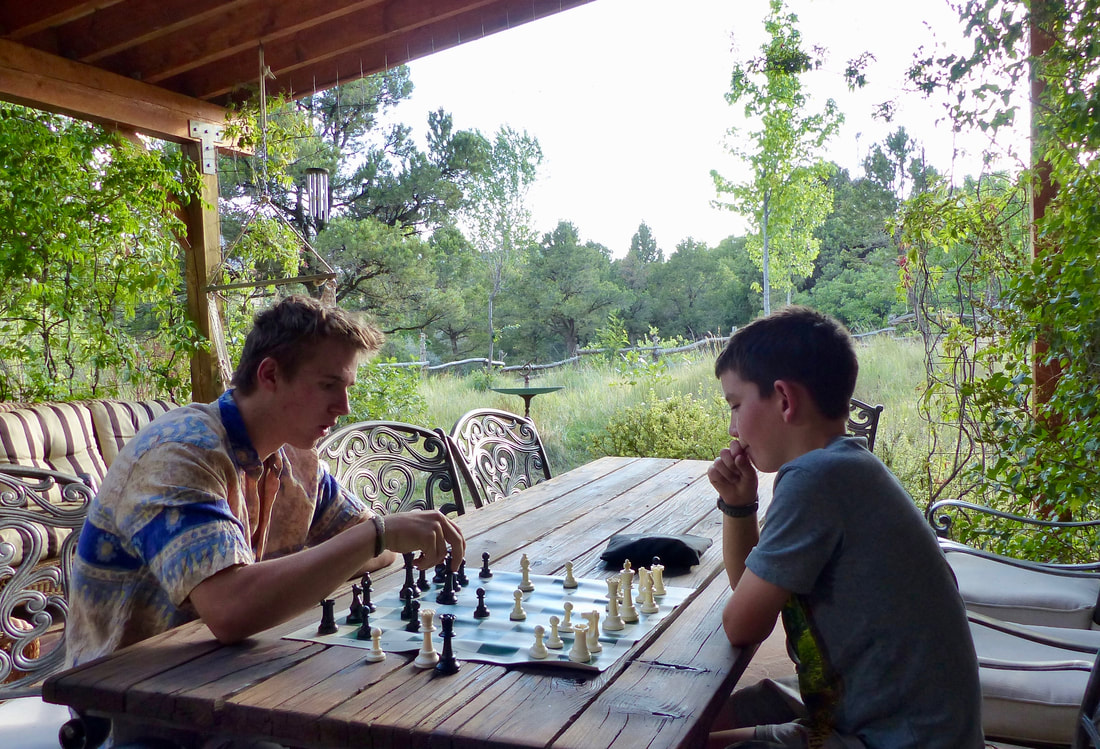 All-ages soccer game at our annual Canyonlands Campout.
All-ages soccer game at our annual Canyonlands Campout.
Consensus decision making is one of the cornerstones of Heartwood. In majority rules decision making, participants align themselves on different sides of an issue in opposition to each other and then try to persuade the undecideds to join their side. There are clear winners and losers.
Consensus decision making turns that process on its head. Rather than expending energy persuading others why my position is right and theirs is wrong, energy is focused on hearing all wants, needs, and concerns and then working with those to sculpt a proposal that best fits them. There is no ”us” and “them”; there is only “us.” It is a wholly different process, one which values deep listening, cooperation, and maturity.
Consensus does not mean that everyone gets their way. That’s where the maturity comes in. Every decision is looked at from the perspective of what’s in the best interest of the community as a whole. Sometimes we must lay aside our personal preferences in favor of an option that looks to be a better solution for the whole community.
And because there are no losers, everyone has buy-in into the decision and supports the implementation. We move forward together with no disgruntled minority left behind.
We do have alternative decision making options available if consensus is not appropriate for a particular decision (urgency, conflict of interest, etc.), but we rarely use those alternatives.
Consensus is about much more than making decisions. It’s really a reflection of the quality of relationships that characterize Heartwood. We value each other’s input and seek through cooperation to meet each other’s needs. We recognize that we are all pulling together for a common good. We are not a collection of factions all fighting each other to get our own way. We are all on this journey together, and we support each other in the process.
Consensus decision making turns that process on its head. Rather than expending energy persuading others why my position is right and theirs is wrong, energy is focused on hearing all wants, needs, and concerns and then working with those to sculpt a proposal that best fits them. There is no ”us” and “them”; there is only “us.” It is a wholly different process, one which values deep listening, cooperation, and maturity.
Consensus does not mean that everyone gets their way. That’s where the maturity comes in. Every decision is looked at from the perspective of what’s in the best interest of the community as a whole. Sometimes we must lay aside our personal preferences in favor of an option that looks to be a better solution for the whole community.
And because there are no losers, everyone has buy-in into the decision and supports the implementation. We move forward together with no disgruntled minority left behind.
We do have alternative decision making options available if consensus is not appropriate for a particular decision (urgency, conflict of interest, etc.), but we rarely use those alternatives.
Consensus is about much more than making decisions. It’s really a reflection of the quality of relationships that characterize Heartwood. We value each other’s input and seek through cooperation to meet each other’s needs. We recognize that we are all pulling together for a common good. We are not a collection of factions all fighting each other to get our own way. We are all on this journey together, and we support each other in the process.
|
Heartwood's Core Agreements provide the foundation for our consensus decision making and interpersonal relations. Our Core Agreements are:
• Vision & Values • Interpersonal Agreements • Core Identity Each new member of the community studies and agrees to abide by our Core Agreements as part of our Membership process. If these agreements resonate with you, Heartwood may be a good community fit. |
|
To specifically learn more about the nuts and bolts of our consensus decision making process, see our Decision Making & Meetings Agreement. To see all of our community agreements, see our Documents page. For more about consensus, check out these links:
|

